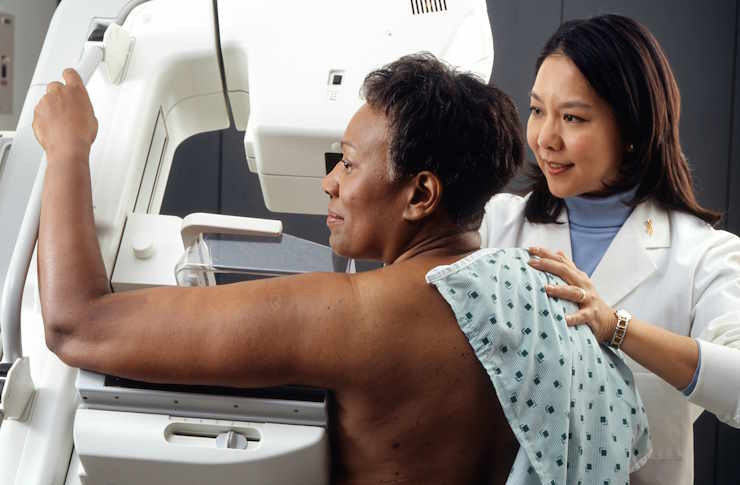Colon Cancer: Understanding Symptoms, Treatments, and Prevention
Colon cancer, also known as colorectal cancer, is one of the most common forms of cancer worldwide. It develops in the large intestine (colon) or rectum, typically beginning as small, noncancerous clumps of cells called polyps. Over time, some of these polyps can transform into cancer. Early detection significantly improves treatment outcomes, making awareness of symptoms and regular screening vital. This article explores the early warning signs, treatment approaches, risk factors, and preventive strategies for colon cancer based on current medical understanding.

Identifying Early Symptoms Of Colon Cancer
Colon cancer often develops without noticeable symptoms in its early stages, which underscores the importance of regular screening. However, when symptoms do appear, they may include persistent changes in bowel habits, such as diarrhea, constipation, or narrowing of stool that lasts more than a few days. Rectal bleeding or blood in the stool is another warning sign that should never be ignored, though it can also indicate more benign conditions like hemorrhoids.
Additional symptoms include persistent abdominal discomfort, such as cramps, gas, or pain, a feeling that the bowel doesn’t empty completely, unexplained weight loss, and fatigue or weakness. Many patients report a general sense of discomfort or the sensation that something is wrong. Since these symptoms can overlap with various digestive conditions, medical evaluation is necessary for accurate diagnosis through methods like colonoscopy, which can detect polyps and cancer in their earliest stages.
Exploring Treatment Options For Colon Cancer
Treatment approaches for colon cancer vary depending on the stage of cancer, overall health of the patient, and specific characteristics of the cancer cells. Surgery remains the primary treatment for most cases, ranging from minimally invasive procedures for early-stage tumors to more extensive operations for advanced disease. During surgery, the cancerous portion of the colon is removed along with nearby lymph nodes to check for cancer spread.
For later-stage colon cancer, additional treatments often complement surgery. Chemotherapy uses medications to destroy cancer cells and is commonly administered after surgery to eliminate any remaining cancer cells. Radiation therapy employs high-energy beams to target and destroy cancer cells, particularly in rectal cancer cases. Newer targeted drug therapies focus on specific abnormalities present in cancer cells, often with fewer side effects than traditional chemotherapy.
Immunotherapy, which helps the body’s immune system recognize and fight cancer cells, has shown promising results for certain types of colon cancer, particularly those with specific genetic features. Clinical trials continue to evaluate novel treatment approaches, offering hope for improved outcomes and quality of life for patients with advanced disease.
Understanding Risk Factors Associated With Colon Cancer
Several factors can increase the risk of developing colon cancer. Age is a significant factor, with most diagnoses occurring after age 50, although recent trends show increasing rates among younger adults. Personal history matters too—individuals with previous colorectal cancer or polyps face higher risks of recurrence.
Inflammatory intestinal conditions like ulcerative colitis and Crohn’s disease can increase colon cancer risk over time. Genetics play an important role as well; inherited syndromes such as familial adenomatous polyposis (FAP) and Lynch syndrome significantly elevate risk. Having a first-degree relative with colorectal cancer also increases a person’s likelihood of developing the disease.
Lifestyle factors contribute substantially to colon cancer risk. A diet high in red and processed meats while low in fiber may increase risk, as can sedentary behavior, obesity, smoking, and alcohol consumption. African Americans have higher rates of colorectal cancer than other racial groups in the United States, though the reasons remain complex and likely involve both genetic and environmental factors.
Preventive Measures To Reduce Colon Cancer Risk
Screening stands as the most effective preventive measure against colon cancer. For people at average risk, screening typically begins at age 45 through methods including colonoscopy, stool-based tests, or flexible sigmoidoscopy. These procedures can detect and remove precancerous polyps before they develop into cancer.
Dietary changes can significantly reduce risk. Increasing fiber intake through fruits, vegetables, and whole grains helps maintain bowel health. Reducing consumption of red and processed meats while incorporating plant-based proteins can further lower risk. Maintaining a healthy weight through regular physical activity—aiming for at least 30 minutes of moderate exercise most days—provides additional protection.
Limiting alcohol consumption and avoiding tobacco products further reduces risk. For those with hereditary conditions or strong family histories, healthcare providers may recommend earlier and more frequent screening, genetic counseling, or even preventive medications or surgery in high-risk cases.
Medical Consensus On Colon Cancer Management
Current medical consensus emphasizes a multidisciplinary approach to colon cancer management. This collaborative model brings together surgeons, medical oncologists, radiation oncologists, gastroenterologists, and other specialists to determine optimal treatment strategies tailored to individual patients.
Research continues to refine our understanding of colon cancer at the molecular level. Advances in genetic testing help identify specific mutations in tumors, allowing for increasingly personalized treatment approaches. The medical community continues to update screening guidelines based on emerging evidence about risk factors and treatment outcomes.
Patient-centered care has become increasingly important in cancer management. This includes considering quality of life alongside survival outcomes when making treatment decisions. Supportive care addressing pain management, nutrition, emotional well-being, and other aspects of living with cancer is now recognized as an essential component of comprehensive treatment plans.
This article is for informational purposes only and should not be considered medical advice. Please consult a qualified healthcare professional for personalized guidance and treatment.




